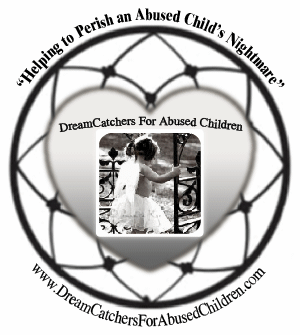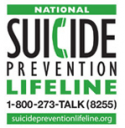Prevention
“Education & Knowledge are the KEY to Prevention!!”
Each day more than three children die as a result of abuse or neglect in the home. On average, a child abuse report is made every ten seconds—a total of approximately three million child abuse reports annually. Childhelp has developed the following child abuse prevention guidelines to help keep your child—or a child you care for—from becoming a statistics. (SOURCE: www.childhelp.org)
Child abuse and abuse fatalities can be prevented. Child neglect that leaves a little one in a dangerous home can be prevented. So, how exactly do we prevent child fatalities?
Research has shown that child maltreatment can be prevented with programs that provide a social worker to support, teach and mentor parents in the home, where “the rubber meets the road” when it comes to real parenting challenges. These programs also provide parents with resources to meet basic needs and stabilize the family.
Communities can prevent child abuse in many ways: neighbors befriending new parents so they are not isolated; parents joining together for child care co-ops to give one another a break; the faith community offering parenting support groups and parents’ day out opportunities.
While changing laws to make sure perpetrators can effectively be prosecuted is important, building community infrastructure to prevent child deaths is paramount.
In times of economic stress, parents become even more desperate. These are the times when child deaths could rise. Keeping prevention in the forefront is essential.
Child Abuse Prevention Guidelines
- Never discipline your child when your anger is out of control.
- Participate in your child’s activities and get to know your child’s friends.
- Never leave your child unattended, especially in the car.
- Teach your child the difference between “good touches,” “bad touches” and “confusing touches.”
- Ask questions; if your child tells you they don’t want to be with someone, this could be a red flag.
- Listen to them and believe what they say.
- Be aware of changes in your child’s behavior or attitude, and inquire into it.
- Teach your child what to do if you and your child become separated while away from home.
- Teach your child the correct names of his/her private body parts.
- Be alert for any talk that reveals premature sexual understanding.
- Pay attention when someone shows greater than normal interest in your child.
- Make certain your child’s school or daycare will release him/her only to you or someone you officially designate.
To learn more about child abuse prevention, call the Childhelp National Child Abuse Hotline at 1-800-4-A-CHILD® (1-800-422-4453). The 24-hour hotline is staffed with professional counselors who offer information about child abuse prevention as well as crisis intervention, literature, and referrals to thousands of emergency, social service and support resources.
- Volunteer your time. Get involved with other parents in your community. Help vulnerable children and their families. Start a playgroup.
- Discipline your children thoughtfully. Never discipline your child when you are upset. Give yourself time to calm down.
- Remember that discipline is a way to teach your child.
- Use privileges to encourage good behavior and time-outs to help your child regain control.
- Examine your behavior. Abuse is not just physical. Both words and actions can inflict deep, lasting wounds.
- Be a nurturing parent. Use your actions to show children and other adults that conflicts can be settled without hitting or yelling.
- Educate yourself and others. Simple support for children and parents can be the best way to prevent child abuse.
- After-school activities, parent education classes, mentoring programs, and respite care are some of the many ways to keep children safe from harm. Be a voice in support of these efforts in your community.
- Teach children their rights. When children are taught they are special and have the right to be safe, they are less likely to think abuse is their fault, and more likely to report an offender.
- Support prevention programs. Too often, intervention occurs only after abuse is reported.
- Greater investments are needed in programs that have been proven to stop the abuse before it occurs — such as family counseling and home visits by nurses who provide assistance for newborns and their parents.
- Physical and sexual abuse clearly constitute maltreatment, but so does neglect, or the failure of parents or other caregivers to provide a child with needed food, clothing, and care.
- Children can also be emotionally abused when they are rejected, berated, or continuously isolated.
- Know the signs. Unexplained injuries aren’t the only signs of abuse-depression.
- Fear of a certain adult, difficulty trusting others or making friends, sudden changes in eating or sleeping patterns, inappropriate sexual behavior, poor hygiene, secrecy, and hostility are often signs of family problems and may indicate a child is being neglected or physically, sexually, or emotionally abused.
- Report abuse.If you witness a child being harmed or see evidence of abuse, or if a child tells you about abuse, make a report to your state’s child protective services department or local police.
- When talking to a child about abuse, listen carefully, assure the child that he or she did the right thing by telling an adult, and affirm that he or she is not responsible for what happened.
- Invest in Kids. Encourage leaders in the community to be supportive of children and families. Ask employers to provide family-friendly work environments. Ask your local and national lawmakers to support legislation to better protect our children and to improve their lives
Stressed out? Wondering what to do?
- Talk about feelings. Take your child’s feelings seriously and work through them.
- Use firm communication. Say what you mean, and mean what you say.
- Model the behavior that you desire in them. Children learn from what they see and hear.
- Encourage your children often and recognize each one’s personal best.
- Use “time-out” balanced with “time-in.” Remember, discipline is a verb meaning “to teach.”
New Parents
- Sleep when you can. “Priorities at this stage should be feeding yourself, feeding your baby, changing her, and sleeping,” she says.
- Use self-soothing exercises, such as deep breathing and visualization.
- Arrange for time away from the baby. Hire a sitter, exchange babysitting, or call helpful relatives and trusted friends to babysit.
- When you are alone with baby and cannot comfort her, put her in her crib, make sure she is safe, and without leaving the house, get away from the screaming. Play comforting music or take a shower.
- If you’re in a new place or can’t reach your helpers and feel you’re going to become abusive, call or go to a neighborhood church or synagogue for help.
21 Proactive Ideas for Govt to Prevent Child Abuse (and 14 Ways You Can Too)
READ MORE HERE:
https://dreamcatchersforabusedchildren.com/2011/07/proactive-abuse-prevention-ideas/
******************************************************
Preventing Child Abuse & Neglect
Resources on child abuse prevention, protecting children from risk of abuse, and strengthening families. Includes information on supporting families, protective factors, public awareness, community activities, positive parenting, prevention programs, and more.
Overview
Understanding child abuse prevention and what to do when children are at risk. Includes frequently asked questions and links to related Federal and national organizations and State contacts that work to prevent child abuse.
Strengthening families
Information on how to enhance protective factors in families and ways to support and partner with parents. Includes a calendar of family activities and parenting resources.
Public awareness & creating supportive communities
Tools for sharing a child abuse prevention message with your community and building community support.
Prevention programs
Standards for prevention programs, research on what works, information on the role of related professionals, and resources for specific types of programs.
Developing & sustaining prevention programs
Considerations for managing a prevention program, including community needs assessments, collaborating with community partners, family engagement and retention, cultural competence, training, and funding.
Evaluating prevention programs
Evaluating program effectiveness and performing cost analyses. Features the Evaluation Toolkit and Logic Model Builder.
SOURCE: http://www.childwelfare.gov/preventing/
—————————————————————————————————————
CLICK HERE TO READ, PRINT, EMAIL, SHARE, OR EMBED OUR FLIER ON HOW TO PROTECT YOUR CHILD FROM SEX OFFENDERS!!!
FREE PDF CHILD SEX ABUSE COLORING BOOK: “It’s Okay to Tell” — a free online PDF version that you can download to your own computer, read, or print off for your child.




















![Validate my RSS feed [Valid RSS]](http://dreamcatchersforabusedchildren.com/wp-content/uploads/2009/10/valid-rss.png)












